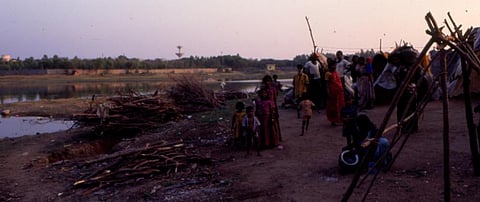

The novel coronavirus disease (COVID-19) pandemic threatened to increase the world’s inequalities, United Nations Human Rights Council (UNHRC) High Commissioner for Human Rights, Michelle Bachelet said on April 9, 2020.
People with disabilities, marginal communities, women, elderly, indigenous communities and migrant labourers were particularly vulnerable to the pandemic, Bachelet said.
She was addressing an informal online meeting of the UNHRC to discuss human rights concerns in the wake of COVID-19.
“The poor, already living in camped spaces with limited access to health care facilities, are more vulnerable to COVID-19,” Bachelet said.
She added that measures taken by countries like lockdowns will also impact the poor as many depend on daily wages.
“The lockdowns cannot last forever and proper exit strategies would need to be developed,” Bachelet said.
The World Wide Fund for Nature (WWF) too raised similar concerns in a paper titled, ‘Building Resilience: WWF Recommendations for a Just & Sustainable Recovery after COVID-19’ dated April 7.
The paper talks about inequalities within the context of post-pandemic recovery plans.
“Badly designed recovery plans in response to the COVID-19 outbreak risk exacerbating the social inequalities and environmental crisis,” the paper said.
“Governments must draw up their plans in a way that helps tackle social inequalities, climate and environmental breakdown, and the need to improve long-term resilience, by taking a consistent approach across the board,” it added.
The world must aim clearly at a green, equitable and resilient recovery, the paper suggested.
The WWF urged the European Union (EU) and its governments to follow a trajectory towards a resilient, sustainable and just economy and society, in line with the European Green Deal, the 2015 Paris Agreement, biodiversity goals and the Sustainable Development Goals.
The organisation called on governments, among other things, to focus on environmentally- sustainable activities in their recovery plans, social benefits through just transition for all and the EU's support to third world countries.
COVID-19 has killed 88,630 people and infected 14,87,870 people in 184 countries so far, according to the latest figures by Johns Hopkins Coronavirus Resource Centre.